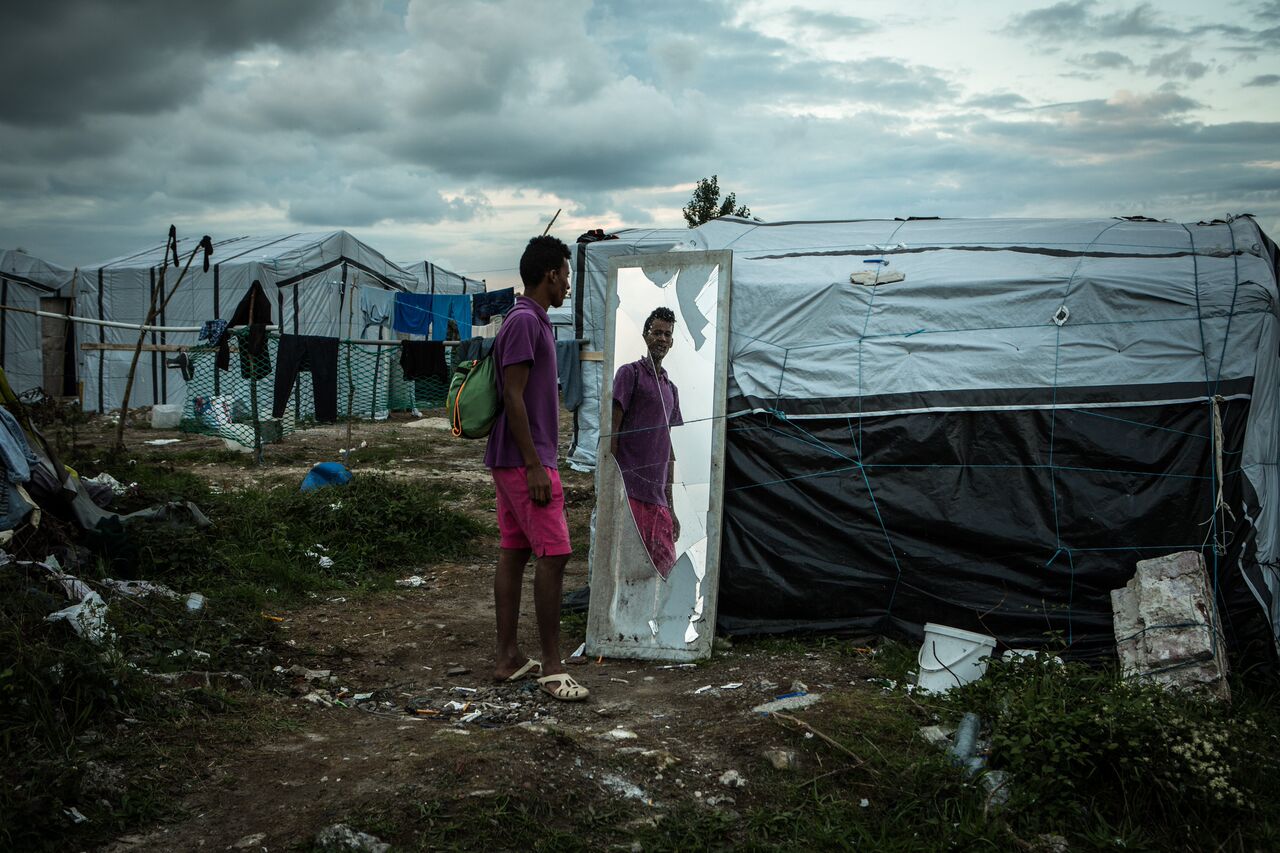Child refugees ‘falling through the gaps’ of asylum schemes

Photograph by CalAid director, James Fisher (www.facebook.com/JoinCalAid)
Child refugees are being failed by the implementation of the current schemes to enable asylum in the UK, according to a report by the Human Trafficking Foundation. Eleanor Sheerin reports.
The Human Trafficking Foundation identified the bureaucratic shortcomings of the Dublin III Regulation and the Dubs Amendment, which provide legal bases for child refugees to safely enter the UK, which left many children ‘falling through the gaps’.
The report, co-written by the Labour MP Fiona Mactaggart and retired judge Baroness Butler-Sloss, has called for the government to ‘play its part in safeguarding the children and young people who are currently left without adequate protection and support in Europe.’ The pair, who are co-chairs of the All Party Parliamentary Group on Trafficking and Modern Slavery, argued the two ‘routes to safety’ focused on in the report – the Dubs scheme and Dublin III – were proven to have ‘serious shortcomings’ in delivering the standards of protection owed to children as outlined in the European Directive on Preventing and Combating Trafficking in Human Beings and Protecting its Victims.
Rabbi Janet Darley, spokesperson for Safe Passage, said that the report confirmed ‘the stark situation on the ground in Europe for child refugees’. ‘Victims of a broken system, children are being unfairly blamed and punished for the desperate situation they find themselves in,’ she said. ‘We join the authors in their call on the government to make safe passage a working reality. The only real option to unsafe and illegal routes is a faster, accessible, transparent and visible processing of children under Dublin III by the UK authorities.’
The Dubs Amendment, otherwise known as Section 67 of the 2016 Immigration Act, requires the Government to make arrangements ‘as soon as possible’ after the passing of the Immigration Act at the end of May 2016 to relocate and support a ‘specified number’ of unaccompanied refugee children from Europe – the government suggested 350 but later increased that to 480.
So far, only 200 children have been brought to the UK under the protection of the scheme, and there is no indication, to workers in either the UK or Calais, that more will be brought over any time soon. The system under which these 200 children were selected was more ‘ad hoc’ than it should be, according to the Refugee Youth Service, and ‘clearly not adhering to due process’.
The Dubs Amendment’s administrative process has been riddled with delays and failures to process cases, the blame for which the inquiry placed on the project’s lack of co-ordination and lack of contact with organisations on the ground who knew the children concerned. The case data that was collected by Home Office officials was not made available to the inquiry; in fact, they were unable to confirm what has actually happened to it, including whether or not the information has been shared with local authorities.
The Dublin III regulations outline a procedure to facilitate family reunions for asylum seekers – an unaccompanied minor may seek asylum in an EU country where a qualifying family member resides. However, the inquiry found that the process of assessing children’s eligibility for this path to asylum has been hampered by rushed assessments and a lack of proactivity on the part of the UK government to investigate individual cases themselves, leaving it to child refugees to build their own case from scratch. Whilst children may be eligible to seek asylum in the UK under Dublin III, the UK has so far failed to adjust their bureaucratic expectations to accommodate the level of information unaccompanied minors can provide, who may have little comprehensive information about their extended family tree, may have missing documents, and may be too traumatised to make a coherent argument for asylum, particularly without legal advice.
These failures have so far left child refugees stranded in camps rife with violence and abuse – one of the inquiry’s most shocking findings concerned the routine and indiscriminate use of truncheons and tear gas by authorities and the police. Rape and other forms of sexual abuse, perpetrated against both boys and girls, was also reported to be taking place in refugee camps. Delays and lack of communication from officials served to only further the distress of children.
Among its recommendations, the report finds that the ‘Dubs scheme’ needs to be kept open to children, and that the specified number of children to brought to the UK under the scheme needs to be increased. This will require, according to the report, ‘expanding the criteria so that it doesn’t exclude vulnerable children due to their age or nationality, and a revised cut-off date (currently, only children who had arrived in Europe before the EU Turkey deal on 20 March 2016 will be considered under the Dubs scheme).’ Regarding Dublin III, the report called for ‘end to end case management’ which would see cases being processed faster in a more accessible and transparent manner, as well as greater co-operation with voluntary agencies who have the trust of the children involved, so that they can work to identify who has relatives to support them in the UK.
This article was published on July 14, 2017






